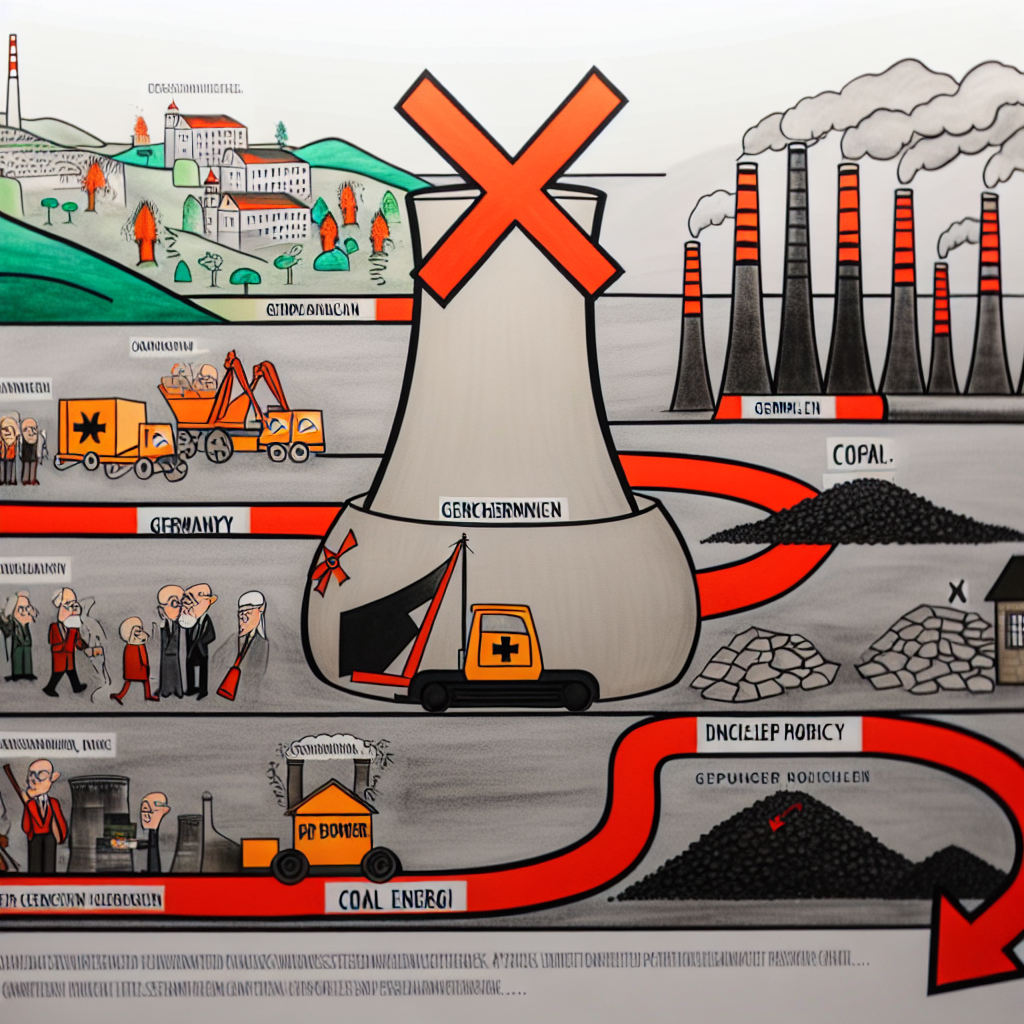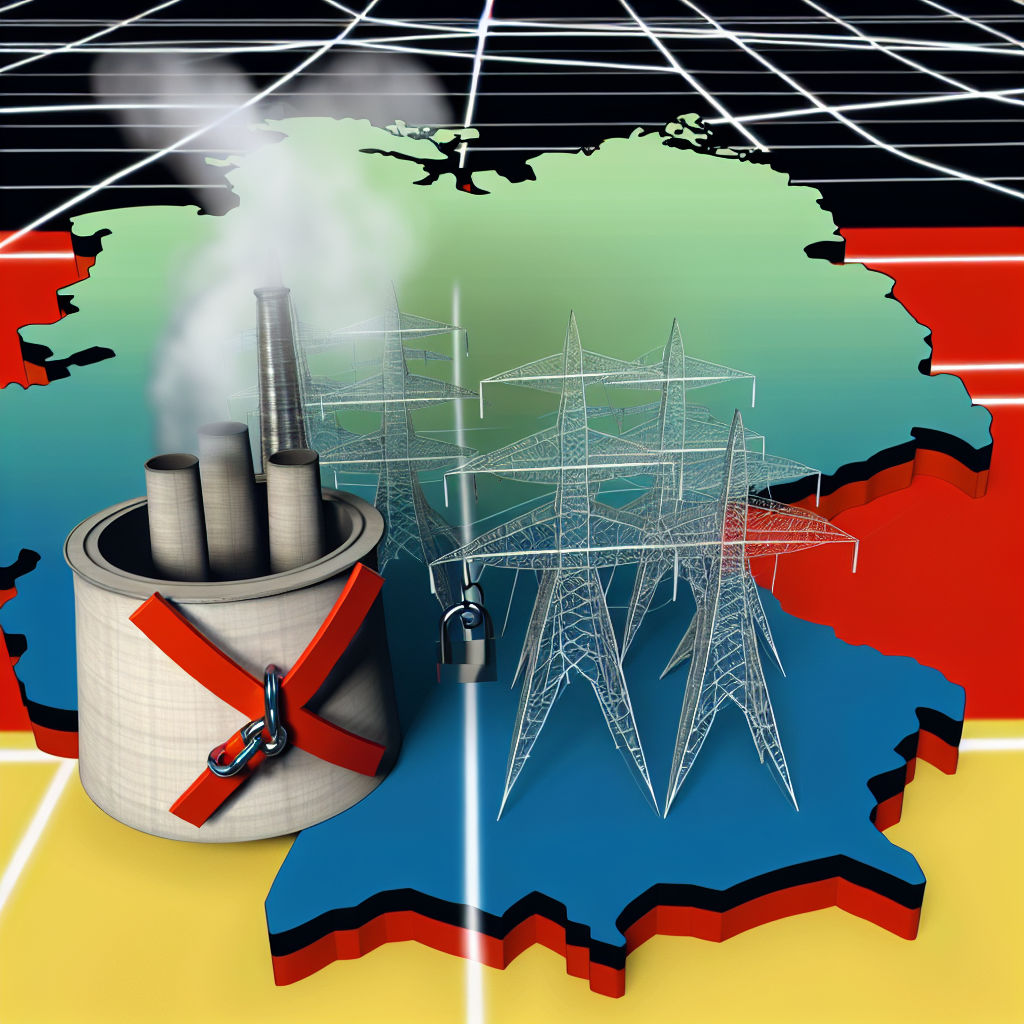The Historical Context of Germany’s Decision to Ditch Nuclear Energy
Germany’s decision to phase out nuclear energy and prioritize coal may seem counterintuitive to some, but it is rooted in a complex historical context. Understanding this context is crucial to comprehending why Germany made this choice and why it is unlikely to reverse course.
To fully grasp Germany’s decision, we must first examine the country’s historical relationship with nuclear energy. Following World War II, Germany embraced nuclear power as a means to rebuild its economy and reduce its dependence on foreign energy sources. The country invested heavily in nuclear infrastructure, and by the 1980s, nuclear power accounted for a significant portion of its electricity generation.
However, the Chernobyl disaster in 1986 had a profound impact on Germany’s perception of nuclear energy. The incident highlighted the potential dangers associated with nuclear power and sparked widespread public concern. This led to a growing anti-nuclear movement, which gained momentum throughout the 1990s and early 2000s.
The turning point came in 2011 when the Fukushima nuclear disaster occurred in Japan. This catastrophic event further intensified public opposition to nuclear energy in Germany. The government responded by announcing a plan to phase out all nuclear power plants by 2022. This decision was met with both support and criticism, but it reflected the prevailing sentiment among the German population.
While the decision to abandon nuclear energy was driven by safety concerns, the choice to prioritize coal as an alternative is more complex. Germany has a long history of coal mining, and the industry has played a significant role in the country’s economy for centuries. Coal has been a reliable source of energy, and Germany has abundant reserves of this fossil fuel.
Additionally, Germany’s transition to renewable energy sources, such as wind and solar, has been slower than anticipated. This has created a gap in energy supply that coal has filled. The country’s coal-fired power plants have provided a stable and affordable source of electricity during this transition period.
However, the reliance on coal has come at a cost. The burning of coal releases large amounts of greenhouse gases, contributing to climate change and air pollution. This has led to criticism from environmentalists and calls for Germany to prioritize renewable energy sources over coal.
Despite these concerns, it is unlikely that Germany will reverse its decision to prioritize coal over nuclear energy. The country has made significant investments in coal infrastructure, and the industry employs thousands of people. Additionally, phasing out coal would require a massive overhaul of the energy sector, which would be both costly and politically challenging.
Instead, Germany is focusing on reducing the environmental impact of coal by implementing stricter emissions standards and investing in cleaner coal technologies. The government has also set ambitious targets for renewable energy, aiming to generate 65% of its electricity from renewable sources by 2030.
In conclusion, Germany’s decision to abandon nuclear energy and prioritize coal is rooted in a complex historical context. Safety concerns following nuclear disasters, combined with a reliance on coal and a slower-than-expected transition to renewable energy, have shaped this choice. While there are environmental and health concerns associated with coal, it is unlikely that Germany will reverse its decision. Instead, the country is working towards reducing the environmental impact of coal and increasing its reliance on renewable energy sources.
The Environmental Implications of Germany’s Shift from Nuclear to Coal

Germany’s decision to phase out nuclear power in favor of coal has raised eyebrows and sparked debate around the world. Many have questioned the logic behind this move, as nuclear power is often touted as a cleaner alternative to fossil fuels. However, when examining the environmental implications of Germany’s shift, it becomes clear that the decision was not made lightly and is rooted in a complex set of factors.
One of the main reasons Germany decided to abandon nuclear power is the lingering trauma of the Fukushima disaster in Japan. The 2011 nuclear meltdown sent shockwaves through the global community and raised serious concerns about the safety of nuclear energy. In the aftermath of the disaster, Germany made a bold and decisive move to shut down its nuclear reactors and transition to renewable energy sources. This decision was driven by a desire to prioritize the safety and well-being of its citizens, even at the cost of increased reliance on coal.
Another factor that influenced Germany’s decision was the country’s commitment to reducing greenhouse gas emissions. As a signatory of the Paris Agreement, Germany has pledged to reduce its carbon footprint and transition to a low-carbon economy. While nuclear power does not produce greenhouse gas emissions during operation, the mining and processing of uranium, as well as the disposal of nuclear waste, contribute to carbon emissions. By phasing out nuclear power, Germany aims to reduce its overall carbon emissions and meet its climate targets.
However, the shift from nuclear to coal has not been without its critics. Coal is widely regarded as one of the dirtiest sources of energy, emitting large amounts of carbon dioxide and other pollutants when burned. Critics argue that Germany’s decision to rely more heavily on coal contradicts its commitment to reducing greenhouse gas emissions. They argue that the country should have focused on expanding its renewable energy sector instead.
Despite these criticisms, Germany has made significant progress in increasing its renewable energy capacity. The country has invested heavily in wind and solar power, and these sources now account for a significant portion of its electricity generation. In fact, on certain days, Germany’s renewable energy sources have been able to meet the country’s entire electricity demand. This demonstrates that Germany’s decision to phase out nuclear power has not hindered its ability to transition to a cleaner energy future.
Furthermore, Germany has implemented policies to mitigate the environmental impact of its increased reliance on coal. The country has set strict emissions standards for coal-fired power plants and has invested in technologies to reduce pollution. Additionally, Germany has committed to phasing out coal entirely by 2038, further signaling its commitment to a sustainable energy future.
In conclusion, Germany’s decision to abandon nuclear power in favor of coal was driven by a desire to prioritize safety and reduce greenhouse gas emissions. While the shift has not been without its critics, Germany has made significant progress in increasing its renewable energy capacity and implementing measures to mitigate the environmental impact of its increased reliance on coal. The country’s commitment to phasing out coal entirely by 2038 further demonstrates its dedication to a sustainable energy future. Germany’s decision may not be without its challenges, but it represents a bold and forward-thinking approach to addressing the environmental implications of energy production.
The Economic Factors Influencing Germany’s Energy Transition
Germany’s decision to phase out nuclear power before coal has been a topic of much debate and analysis. Many have questioned the rationale behind this decision, especially considering that coal is a major contributor to greenhouse gas emissions. However, when examining the economic factors influencing Germany’s energy transition, it becomes clear why the country made this choice and why it is unlikely to reverse it.
One of the key factors driving Germany’s decision to abandon nuclear power is the cost. Nuclear power plants require significant investment in construction and maintenance, and the costs associated with decommissioning and waste disposal are also substantial. In contrast, coal-fired power plants are relatively inexpensive to build and operate. This cost advantage makes coal a more attractive option for countries looking to meet their energy needs without breaking the bank.
Another economic factor that influenced Germany’s energy transition is the availability of domestic resources. Germany has abundant reserves of lignite, a type of coal that is relatively cheap and easy to extract. By relying on domestic coal, Germany can reduce its dependence on imported energy sources, which can be subject to price fluctuations and geopolitical tensions. This energy independence is seen as a strategic advantage, especially in a world where energy security is becoming increasingly important.
Furthermore, Germany’s decision to prioritize coal over nuclear power can also be attributed to the country’s strong coal mining industry. Coal mining has a long history in Germany and has played a significant role in the country’s economy. By continuing to support the coal industry, Germany can protect jobs and preserve the livelihoods of those working in the sector. This consideration is particularly important in regions heavily reliant on coal mining, where the closure of mines and power plants could have devastating economic and social consequences.
However, it is important to note that Germany’s energy transition is not solely driven by economic factors. The country has also made a commitment to reducing greenhouse gas emissions and transitioning to renewable energy sources. This commitment is in line with Germany’s efforts to combat climate change and meet its international obligations under the Paris Agreement. By phasing out nuclear power, Germany aims to accelerate the development and deployment of renewable energy technologies, such as wind and solar power.
While Germany’s decision to prioritize coal over nuclear power may have made economic sense at the time, the country is now facing the challenge of reducing its reliance on coal and transitioning to cleaner energy sources. The environmental and health impacts of coal combustion, including air pollution and carbon dioxide emissions, cannot be ignored. As a result, Germany has set ambitious targets to reduce its coal consumption and increase the share of renewable energy in its energy mix.
In conclusion, Germany’s decision to phase out nuclear power before coal was influenced by a combination of economic and strategic factors. The cost advantage and availability of domestic resources made coal a more attractive option for meeting the country’s energy needs. Additionally, the desire to protect jobs in the coal mining industry and reduce greenhouse gas emissions also played a role in this decision. While Germany is now facing the challenge of transitioning away from coal, it is unlikely to reverse its decision and return to nuclear power. The country’s commitment to renewable energy and its efforts to combat climate change make a return to nuclear power an unlikely scenario.


